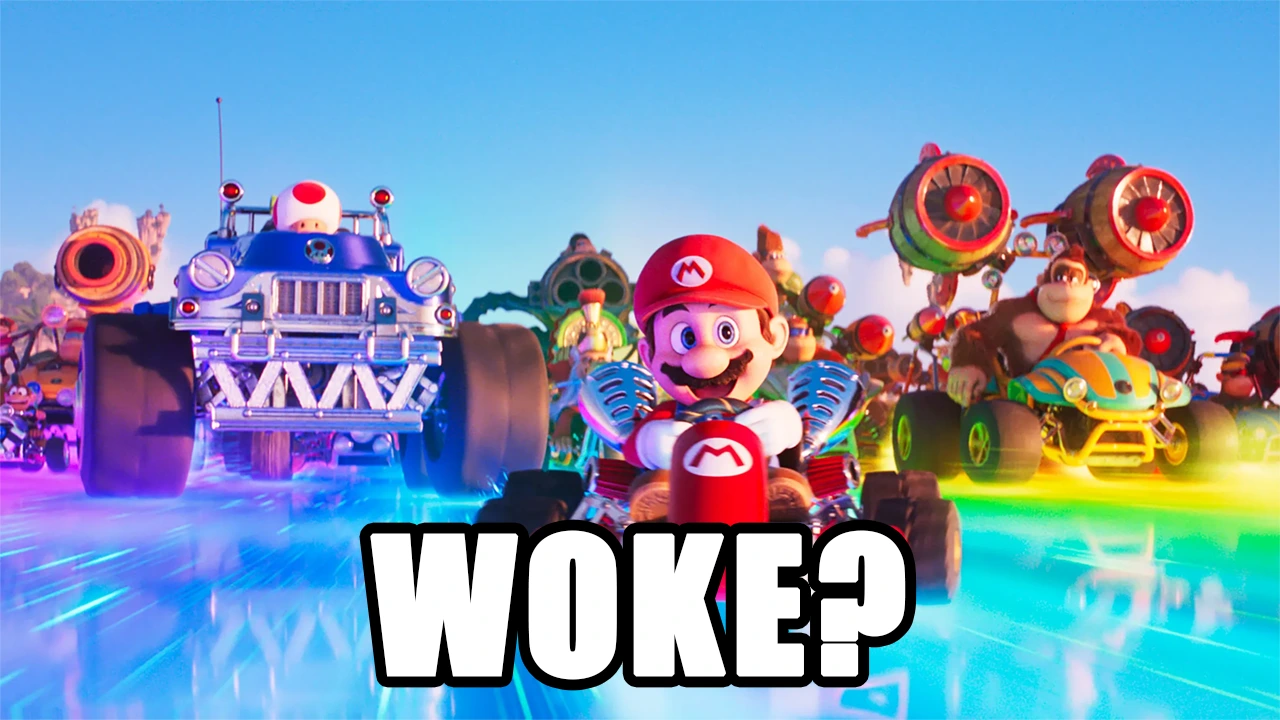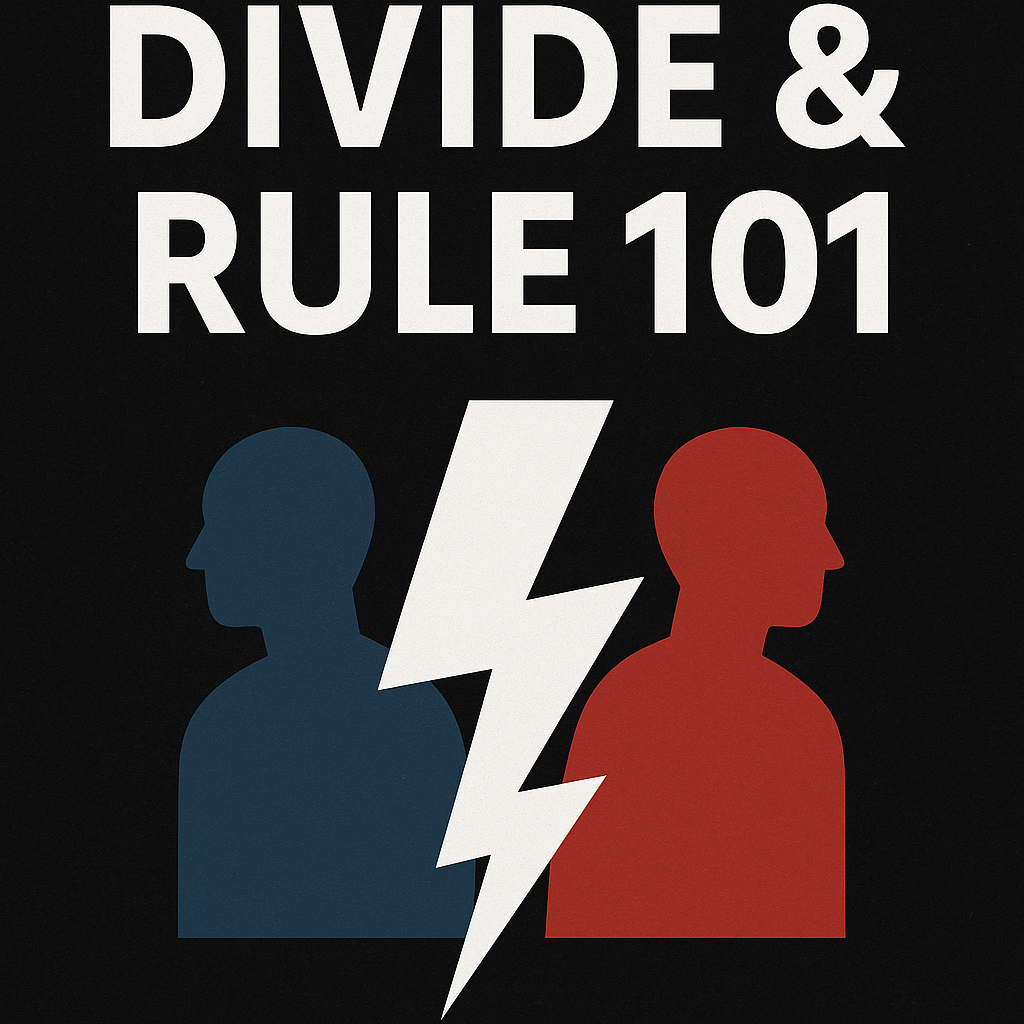As the second week since the release of the Super Mario Bros. Movie passes us, and the film reaches beyond half a million dollars in ticket sales, an interesting debate has arisen among the Right. The majority align with popular Rumble comedian and pundit, Steven Crowder, believing the film to be a success because it is not woke, a traditional story emerges, one that isn’t perfect, suffers from too brisk a pace, and really could have used an additional ten minutes to flesh out the overall story, but still manages to remain family-friendly and entertaining, nonetheless. While YouTube personality Tim Pool claims it is a success in spite of being woke and illustrates the point that Get Woke/Go Broke is more of a tendency and not a rule. So, who is right? Is Super Mario Super Woke? And should you, as a parent, let your kids watch it? Well, since there are heavy spoilers ahead if you’d rather avoid them, I’ll say, no it’s not woke, and of course you should take your kids to see it!
There aren’t very many claiming that the film is woke. There are primarily two. Tim Pool, and also weapons expert, author, and historian Shad Brooks of the YouTube Channel, Shadiversity. Both made rather lengthy videos listing their grievances. For the sake of brevity, I will combine and list their gripes, since there are a lot of crossovers between the two, and then examine each complaint and address each one.
The complaints are as follows:
- Mario is useless, stupid, and incompetent and can’t do anything right at all.
- Luigi spends the majority of the film in a cage and has very little screen time.
- This is Peach’s adventure, and Mario is just along for the ride. Peach is practically perfect, with no flaws, never loses, never fails, and humiliates Mario.
- Mario turns into a cat.
- Bowser simps for Peach.
So, let’s jump right into these complaints.
Complaint: Mario is useless, stupid, and incompetent and can’t do anything right at all.
Truth: This is an origin story and a pretty relatable one at that. Mario and Luigi have both just left their jobs at the Wrecking Crew to open their own plumbing business, against the advice of their boss, Spike, and their family. Unfortunately, that decision isn’t going well at the beginning of the film. Like a lot of Americans who decide to go into business for themselves, the Mario Brothers face failure, and the schadenfreude of others who seem to be much more interested in pulling Mario back down to earth,
especially as his dreams seem to be pulling his younger brother down as well. These are challenges entrepreneurs face in real life too, so this isn’t about making Mario incompetent, so much as it is speaking to the challenges new businesses often face. After all, it’s rare for people to succeed on the first try. However, Mario refuses to give up. He takes a job that goes awry because of his client’s dog, then ends up being mocked by his family, especially his father, for taking such an insane risk in starting his own business. But Luigi believes in him. This sort of thing happens in real families. I still dream of writing fiction for a living. My brother-in-law mocks me for never finishing a book, so this isn’t about reflecting wokeness, but rather to make Mario relatable to people who struggle trying to make their own way.
Mario and Luigi then become aware of a massive water leak in Brooklyn, and their failure to fix it is not their fault, as the pipes are very old and the valve breaks. Mario and Luigi end up stumbling into a forgotten underground pipe maze, similar to the game board of the original Mario Bros, and then stumble into a pipe that leads to the Mushroom Kingdom.
They’re separated, of course, and Mario meets Toad and tells him what happened to Luigi. Toad decides Mario needs to speak with the Princess, who yes, mocks him for being short. Peach is busy with problems of her own but agrees to help Mario if he can clear one of their obstacle courses. And yes, Mario fails, over and over, getting a little better each time . . . not unlike many game players picking up the game for the very first time. Eventually, Peach decides she has seen enough and agrees to let Mario accompany her on her journey. Yes, that line there, but it is Mario’s journey, and his journey is that of the fish out of water in a strange new world. So of course, we see him fail.
Next, the group arrives at the land of the Kongs where Peach fails to form an alliance with Kranky Kong. So, Mario steps in to demand Kranky help them . . . which he agrees to do, if Mario defeats his son, Donkey Kong . . . which he does. So, we see our hero fail, fail, fail, and then succeed. DK’s later claims to have let Mario win are nothing more than his being a sore loser, and it’s obvious DK is being a sore loser.
Meanwhile, Mario’s success here changes Princess Peach’s attitude towards him and she ceases to belittle him, and instead start’s trying to build him up, as well as displaying hints of affection . . . something that absolutely doesn’t happen between men and women in woke movies. Next is the Rainbow Road kart race, which Mario is winning until he gets hit with that accursed Blue Shell of Doom, again, not a failure due to Mario being weak, but a moment of pain anyone who has ever played Mario Kart has felt the minute some jerk fires that Blue Shell off. Not woke, a moment of connection to the fans of the game.
From here Mario will have a series of victories, though. Alongside DK, he does get eaten by the giant eel from Mario 64 but manages to escape, stage a counterattack on Bowser, who had successfully forced Princess Peach to surrender, kidnapped her, and was trying to force her into a wedding where his captives would be dropped into lava, as a sacrifice. Yes, Peach takes action to try and thwart Bowser, more on that later, but it is DK who ultimately stops the captives from being dropped into lava and
Mario who rescues Luigi, and it is Mario who ultimately saves the Mushroom Kingdom from being blown up by a Bonsai Bill.

Mario leads Bonsai Bill (A super-sized sentient bullet) to the pipe that serves as the link between the Mushroom Kingdom and Brooklyn, and that causes an explosion that ends up pulling everyone into our world, where Mario, Luigi, Toad, Peach, and DK battle it out with Bowser. It doesn’t go well for any of them. Bowser simply overpowers everyone. Mario ends up retreating to a Pizzeria, and yes has a moment of serious self-doubt that worried me for a moment . . . but then he pushes through it. He refuses to give up and manages to link up with Luigi, and together, it is the brothers who defeat Bowser, in front of everyone, winning the approval of his family, his former boss Spike, and the heart of the princess.
Things don’t play out this way in Woke movies. Rather, the male lead ends up truly playing second fiddle to a female character who ends up saving the day just by realizing how super awesome she is. The male leads are lectured relentlessly, and relegated to the background, even if the movie or show is named after that male lead. The females, meanwhile, never have any flaws, other than not realizing how awesome they are, and they end up being the one who defeats the bad guys, not the male lead IE Dr. Strange and the Multiverse of Madness where Strange is not the one who defeats the Scarlet Witch, but rather newcomer, super awesome and practically perfect America Chavez, whose only weakness is not believing in herself). SMB the movie absolutely sets up these ridiculous tropes, but then subverts them for a more traditional narrative of a fish out of water who goes from zero to hero. Because of this
subversion of post-modern narrative expectations, the film becomes not just not woke, but anti-woke in the process. But let’s move on.
Complaint: Luigi spends the majority of the film in a cage, and has very little screen time.
Truth: This is absolutely true. Luigi has a very small role in this film, though I wouldn’t say he is a damsel in distress, as Peach is in fact, captured later. Rather Luigi is also a fish out of water who ends up in the wrong place at the wrong time. That said, once he is freed from his cage, by Mario, he does get his moment, saving Mario from Bowser, and then sharing in the Star Power that enables the brothers to overcome and defeat the giant, evil fire-breathing turtle. Is this change to the narrative woke? I don’t
think so. A disappointment, sure, but lots of movies feature the heroes getting separated and one of them getting caught. I wish Luigi had served a larger role in this film, but the tragedy of this decision is that Luigi is reduced to a McGuffin, a plot device to move Mario’s plot forward, not a damsel in distress. A Damsel in distress still gets to do stuff, IE Princess Leia got plenty of opportunities to show her own strength, even in distress. The McGuffin is just there, as was Luigi, until the end. Not woke, just disappointed writing on this point.
Complaint: This is Peach’s adventure, and Mario is just along for the ride. Peach is practically perfect, with no flaws, never loses, never fails, and humiliates Mario.
Truth: Not true at all. Mario has far more screen time. It is true that she has her own story already going that Mario falls into, her war with Bowser, but this only really serves Mario’s fish-out-of-water narrative.
In most Fish out of Water stories, there’s a character who knows the new world, and mentors the hero. It can be said that Peach is Obi-Wan to Mario’s Luke, but that hardly makes this her story. She is initially antagonistic towards Mario because she doesn’t know him, and she doesn’t know anything about him.
And it is true she does clear the obstacle course that Mario fails on the first try . . . but again, this has more to do with echoing the player’s experience than it does with shoring up an ESG score . . . there’s always that one player who manages to show you up and clear the level you’ve been stuck on the very first time they try.
But this is the only time we see Peach succeed without effort. The rest of the film is her, not Mario, failing and Mario having to step in on her behalf. She fails to persuade Kranky Kong to form an alliance with her, that alliance is only made possible by Mario’s courage. She fails to defeat Bowser at Rainbow Road after Mario is hit by the ultimate weapon of terrorism, that darn Blue Shell . . . she ultimately surrenders to Bowser, is taken captive, and forced into a wedding, which she tries to get out of with an Ice Flower . . . which she loses after she is hit. She fails to free herself; she tries but fails to save the captives, and when she has the opportunity to take the Power Star away from Bowser, she instead uses a Koopa shell to launch it toward Mario.
When we meet Peach, she seems like she’s going to end up being the girl boss who is a strong independent woman who “don’t need no man” . . . but once again, that Progressive expectation is subverted. Peach not only fails but ends up building up the lead male, rather than continuing to tear him down. She comes to depend on him and even chooses to trust her fate to him, and his younger brother, rather than taking her fate into her own hands the way we see happening in all of Phase Four Marvel
movies. Once again, the setting up of Woke expectations, only to subvert them not only makes this film not woke, but anti-woke.
Complaint: Mario turns into a cat.
Truth: Why this makes it woke is beyond me. Cats are very popular in Japan, and so in Super Mario 3D World, for Wii U and Switch, there is a catsuit power-up that enables Mario, Luigi, Peach, Toad, and Princess Rosalina (who has to be unlocked) to take the form of a kitty cat. There is no reason to be upset about this since it is taken right from one of the more recent games, and a rather well-received power-up as well. Super Mario 3D World was a great game that I must believe Tim must have just missed. Not woke, just a ‘member-berry.
Complaint: Bowser simps for Peach.
Truth: Yes, he does and it’s hilarious. Jack Black absolutely chews the scenery in this role, handling Bowser like a teenage punk rocker with a crush. We all know that guy who picked up a guitar for the first time to try to win the girl . . . only for it to fail in spectacular fashion because his songs are just so cheesy. We all laughed at that guy while secretly rooting for him. That’s Bowser in this movie. But it’s also Bowser in a
large number of the more recent games. At least as far back as Super Mario Sunshine, Bowser has been trying, unsuccessfully, to win the heart of Princess Peach. In Sunshine he lies to his son, telling him that Peach is his mother, in Super Mario Odyssey, he kidnaps Peach and tries to force her into marriage . . . sound familiar? The cheesy and over-the-top love triangle between Mario, Bowser, and Peach goes back a long time now, so I don’t understand why this aspect of the story is suddenly woke. Bowser is still evil and does terrible things. He’s far from submissive to Peach, he steals the Power Star at the beginning hoping to use it to win Peach over, destroying a kingdom of Penguins in the process. He brutalizes his underlings, captures Luigi, attacks the hero on Rainbow Road, forces Peach to surrender, then tries to sacrifice his captives as a wedding present, before trying to blow the Mushroom Kingdom off the map.
This isn’t the sort of beta male behavior we expect from simps on the Internet, white knighting for controversial female activists like Anita Sarkeesian (an anti-gaming Feminist who picks fights with gamers and then plays victim). This is the mustache-twirling cartoon villain tying the leading lady to the railroad tracks to force a marriage agreement out of her . . . mixed with that angst-ridden 17-year-old wannabe rocker with a crush. This isn’t woke, it’s just silliness, and it’s absolutely ripped right from the
games.
So, is Super Mario Super Woke? Not at all. That’s not to say the film is perfect. I could nit-pick it, but I really don’t want to, because the movie was just fun for me, and that’s all I wanted it to be. It’s absolutely worth seeing with your family. And as I’ve pointed out . . . because it sets up woke expectations, and then subverts them, it’s not just not woke, but anti-woke, and I do think that its decision to go against the woke grain lends to the tremendous success the film has had this far.






